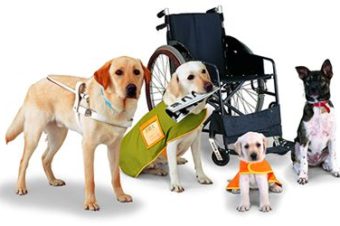Young children, toddlers, and preschoolers know when bad things happen, and they remember what they have been through. After a scary event, we often see changes in their behavior. They may cry more, become clingy and not want us to leave, have temper tantrums, hit others, have problems sleeping, become afraid of things that didn’t bother them before, and lose skills they previously mastered. Read more.
Similar Posts
Understanding How to Accommodate Service Animals in Health Care Facilities
This fact sheet is intended to clarify legal obligations and etiquette when interacting with an... Read More
Tips for first responders for people with special needs
A small pocket guide provides guidance on how first responders should approach caring for people... Read More
Tools for Communicating with Specific Vulnerable Groups
The Florida Department of Health (DOH) developed a communication resource guide for public health personnel... Read More
Tips for Disaster Responders: Preventing and Managing Stress
The sheet provides tips to help disaster response workers prevent and manage stress. Includes strategies... Read More
Behavioral Health Tips for Responders: Maintaining Calm at a POD
Receiving treatment at a point of dispensing (POD) will be an anxiety producing event for... Read More
Tips for Disaster Responders: Understanding Compassion Fatigue
This tip sheet explains the causes and signs of compassion fatigue, burnout, and secondary trauma... Read More


